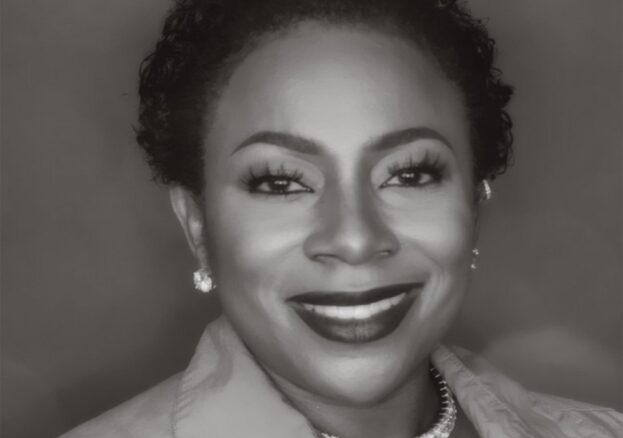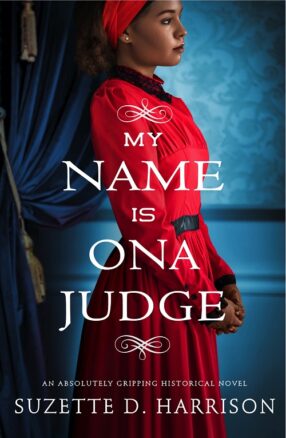
when I received an email from my publisher asking if I’d be interested in writing an article for Black History Month. My initial response was a soft sigh, and thoughts of the energy the task would require. Not to mention, the creativity of thought. I’m a writer. This is my passion, (part-time) profession, and God given purpose. I just recently finished a 332 page novel to be released on September 6. Passion aside, writing can be exhausting. Right now, my mind is on hiatus. Writing an article seemed laborious. But then I clicked on the link my publisher provided and visited BHM.
Beautiful pictures dominated the screen, pictures of people who share my brown skin. A soft smile kissed my lips as I began to scroll the homepage content. The first words my eyes latched onto were the ones quoted above where the editor declared her intent to move people from words to action. That made me stop and think about the protagonist of my upcoming novel: Ona Judge.
For those who aren’t familiar with her, Ona Judge isn’t a fictional character. She was a “real” woman. Born in June 1774, she lived on Mount Vernon as the enslaved property of the Martha Washington. As in the wife of George Washington, the United States’ first president! While my nation’s founding fathers were fighting for freedom from British dominance and penning such indelible words as “all men were created equal” publicly; privately, many held others in bondage under the cruelty of human slavery. Yes, even George and Martha Washington.
When I first learned of Ona Judge’s existence, I was fascinated. By her life. Her experiences. Her great escape from Mount Vernon–a place owned by the nation’s most powerful person.
Miss Ona was the daughter of Betty Davis, the plantation’s seamstress, and Andrew Judge, an English tailor and indentured servant. It’s unknown if the relationship between her parents was consensual or not, but Ona was the product. She was a young girl when her work about Mount Vernon transitioned from serving in the nursery, fetching water or gathering kindling to that of being a lady’s maid for the plantation’s mistress. Living in the “big house” brought her into close proximity and constant contact with the Washingtons, persons who held her in bondage and logged her name in ledgers, as they did livestock or other inanimate objects. But somewhere in Ona’s psyche existed the truth of her value, that she was more than a commodity. Clearly, some place in her soul intuited its worth, that she deserved to be free. Her daring actions prove that she believed in her inalienable right to be more than another person’s property.
It was a spring night, May 21, 1796, when Ona Judge put her convictions into action. As the Washingtons ate dinner at the presidential home in Philadelphia Pennsylvania, Ona slipped away. She escaped into the night, becoming a “fugitive slave.” With the aid of others, she’d befriended in Philadelphia’s Free Black community, she sailed away aboard the Nancy to Portsmouth, New Hampshire.
Martha Washington was distraught, the President was livid upon discovering Ona’s “great deceit,” and had notices of her absconding published in newspapers, as well as posted about the city. A ten-dollar reward was placed on Ona’s head. Agents acting on behalf of George Washington managed to locate her and attempted to persuade her to return. Ona refused. She knew her worth. She chose to be free, even when freedom meant an impoverished, uncertain living. She employed her skills as a seamstress, and a domestic, showing her willingness to be self-sufficient. She lived without the comforts of presidential royalty in exchange for liberty.
 Ona Maria Judge married a sailor, Jack Staines, and bore three children with him. She suffered loss and loneliness. Her husband (only after six years of marriage) and two of her three children preceded her in death. Yet, when interviewed by two different sources in her eighties, we gather that she never regretted the free life she lived or her decision to boldly escape bondage.
Ona Maria Judge married a sailor, Jack Staines, and bore three children with him. She suffered loss and loneliness. Her husband (only after six years of marriage) and two of her three children preceded her in death. Yet, when interviewed by two different sources in her eighties, we gather that she never regretted the free life she lived or her decision to boldly escape bondage.
These interviews are rare treasures in which a formerly enslaved person’s words are captured for our enlightenment and awareness. They’re priceless, allowing us to hear Ms. Ona’s experiences directly from the source, not another conduit. For me, these interviews were an invitation into her sacred space, an opportunity for sitting, hearing, and learning. Admiring. Reverencing. How this woman at the age of twenty-two managed such a great escape from the nation’s most powerful persons–for me–is breathtaking. I sit in awe and honour her name. Ona Maria Judge Staines.
Grab a copy of My Name is Ona Judge and immerse yourself in the life of this fascinating young woman!
About Suzette D. Harrison
Suzette D. Harrison, a native Californian and the middle of three daughters, grew up in a home where reading was required, not requested. Her literary “career” began in junior high school with the publishing of her poetry. While Suzette pays homage to Alex Haley, Gloria Naylor, Alice Walker, Langston Hughes, and Toni Morrison as legends who inspired her creativity, it was Dr. Maya Angelou’s I Know Why the Caged Bird Sings that unleashed her writing. The award-winning author of Taffy is a wife and mother of two teens, and she holds a culinary degree in pastry and baking. Mrs. Harrison is currently cooking up her next novel…in between batches of cupcakes.
